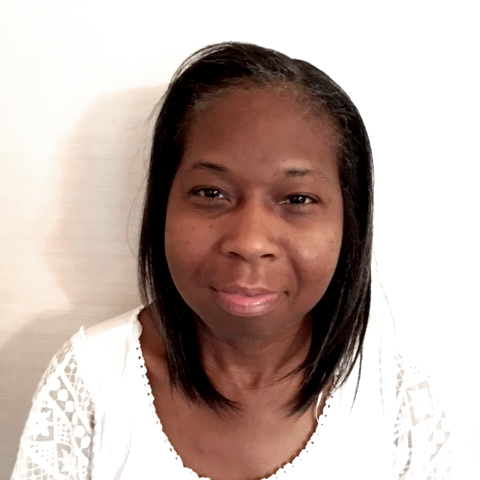ADA Turns 30
How the landmark Americans with Disabilities Act flourishes at Rutgers SHP
Implementing the Historic Legislation
 By Amy Banko, MS, CPRP
By Amy Banko, MS, CPRP
Integrated Employment Institute
Department of Psychiatric Rehabilitation and Counseling Professions
This year marks the 30th anniversary of a significant milestone in the history of disability legislation, the signing of the Americans with Disabilities Act (ADA.) Deemed by the New York Times as “the most sweeping anti-discrimination measure since the Civil Rights Act of 1964,” the ADA bars the discrimination of people with disabilities, including in employment and academic settings.
Here at Rutgers, the spirit and message of the ADA, and its application to mental health conditions, flourishes within our classrooms, work, and research.
This is especially true of the work being conducted within the Integrated Employment Institute (IEI), located within the Department of Psychiatric Rehabilitation and Counseling Professions. For almost 20 years, IEI has trained New Jersey mental health practitioners in supported employment and supported education services. We have conducted hundreds of trainings to educate practitioners on the application of the ADA in both the workplace and educational settings.
We have trained college counselors to assess the functional barriers of students with mental health conditions and given them the skills and resources to pair accommodations to a student’s needs to bolster academic success. And we are currently researching how to guide individuals in disclosing their mental health conditions to colleges.
In the business sector, we’ve worked with employers on how to build diverse and inclusive work cultures that are observant of the ADA and rights of their employees. Among those IEI has provided training and consultation to are representatives in the Garden State Employment and Training Association and the New Jersey Chamber of Commerce.
Our faculty have been called on to lead discussions at national conferences as experts on the topic of mental health in the workplace and in education.
Considering that approximately 61 million people in the United States have a disability, you are likely to have someone in your life who has a health condition who could benefit from the rights that the ADA affords. You may also know someone in the fastest-growing disability subgroup, people with mental health conditions. Mental health conditions have notoriously been associated with stigma, prejudicial treatment, and discrimination.
But due in large part to the ADA, people with mental health conditions can thrive in both the employment and academic settings. As IEI continues its work at Rutgers, we will continue to honor the landmark law and all that it’s accomplished within its 30 years of existence, by passionately spreading the message of equity and inclusion for all people regardless of health conditions.
Seeing ADA Through My Eyes
 By Doretha Smith
By Doretha Smith
Peer Counselor, Eye2Eye
Department of Psychiatric Rehabilitation and Counseling Professions
As an individual who is visually disabled due to a rare genetic disorder known as retinitis pigmentosa, the Americans with Disabilities ACT (ADA) has made a significant difference in my life. It is still doing so. Please take a moment to see the impact of ADA through my eyes.
Despite the challenges of my vision loss and the many hurdles and stigma built into our society, I gained a different, more optimistic perspective towards achieving my goals because of the ADA. With this new perspective, I took the steps to accomplish goals that at one time seemed impossible. The ADA, along with my faith in God, propelled me. My disability does not define who I am or what I can accomplish. Take another moment to see this through my eyes.
Through the ADA, I was provided equal protection under the law and given reasonable accommodations such as assistive technology and flexibility in learning and testing within higher education. This enabled me to pursue and attain college and graduate level degrees in Social Work and Religious Studies. Without the ADA’s rights, and requirements for reasonable accommodations, I would not have been afforded equal opportunity to be employed or given the ability to reach my personal and professional goals. Now, I am blessed to be on the diverse staff of Rutgers Eye2Eye Peer Support Program, a phone-based program at Rutgers School of Health Professions that helps individuals with vision loss and their families. Eye2Eye is composed of staff members who choose not to focus on labels and limitations of disability, but instead on their unique abilities to come together to positively impact people lives.
As a peer counselor, I help individuals who are blind or visually impaired adjust to the social and emotional challenges of losing their vision through shared experience and understanding, resilience building, family support, education and referral services. Through the measures put into place by the ADA, I am able to receive appropriate accommodations today at work, including assistive technology and equipment, modified systems and timeframes, remote work supports, and workflow restructuring. In my role as a peer counselor, I am able to educate clients about the doors that have opened to them through the ADA, as well as hear how the law has impacted their lives in various ways.
Take one last moment to see of the ADA through my eyes. Through the collaborative work of a diverse group of people, this groundbreaking legislation paved the way for the disabled to live productive lives. Imagine with me for a moment if the ADA were not enacted. This country would have lost out on the unique contributions of millions of Americans including those of my Eye2eye co-workers and myself. I see my disability not as an inability to contribute, but as an ability to do things differently.